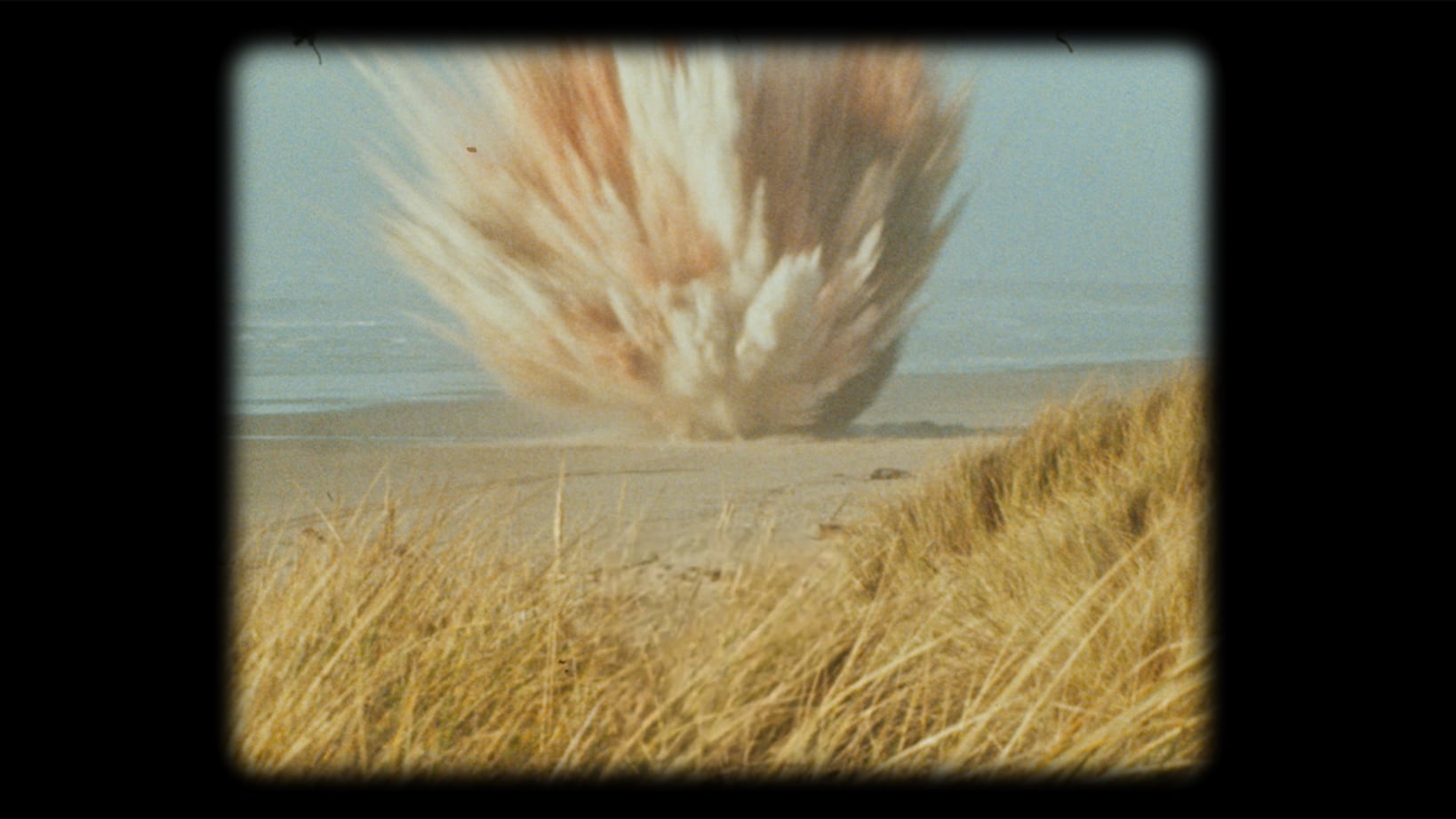The word “meme” didn’t exist when Paul Linnman and Doug Brazil—a KATU-TV reporter and cameraman, respectively—chartered a flight from Portland to Florence one cool November day in 1970, and the notion that ideas or images could propagate like viruses wouldn’t become part of mainstream discourse for at least a couple of decades. So they had no way of knowing they were on their way to make one of the first viral videos.
They were simply a couple of up-and-coming young TV journalists acting on a tip that the Oregon State Highway Division (now the Oregon Department of Transportation) was planning to blow up a beached whale with dynamite. But as Linnman recounts in Oh Whale, a documentary short by filmmaker Winslow Crane-Murdoch showing at the Tomorrow Theater on Nov. 12, KATU’s clip of the explosion—and the rain of blubber that followed—started building buzz almost immediately. As Linnman tells it, police departments, fire departments, hazmat crews and “U.S. senators, for whatever reason” started calling the station from all over the country to request a copy of the clip. Perhaps they wanted to screen it at meetings to use as a cautionary tale about finding solutions well tailored to the problems they intend to solve. Or maybe they had a serious interest in the underresearched effects of dynamite on the flesh of aquatic mammals.
But one suspects more than one requester simply got a kick out of Linnman’s glib, wordplay-heavy narration, including the opening observation that officials had a “whale of a problem” and that after detonation, “the blast blasted blubber beyond all believable bounds.” Syndicated humor columnist Dave Barry brought the whale fiasco to national prominence in 1990, and he makes an appearance in Oh Whale, too, telling a reporter, “This is not only a big part of my life. It’s probably the most significant thing that ever happened in the lifetimes of most living Americans.”
Despite that, and despite the fact that KATU’s remastered clip of the explosion—uploaded in 2020—has more than 22 million views on YouTube, the exploding whale still feels like a private joke among Oregonians, like our weird little thing. (Or, more accurately, our weird very, very big thing nobody knew what to do with.)
“It’s part of Oregon lore,” Crane-Murdoch told WW in a phone interview from Savannah, Ga., where the film was shown as part of a short festival tour before the Tomorrow Theater’s screenings, which hardcore whaleheads know is the blast’s 55th anniversary. A native of upstate New York, Crane-Murdoch said he didn’t know the whale story himself until he moved to Portland in 2017. When he spoke with WW, the film had already picked up jury awards at the Monclair and New Hampshire film festivals—where, he notes, East Coast audiences are largely unfamiliar with the story. They are thus wholly unprepared for the reveal, halfway through the tightly edited 25-minute film, that instead of swiftly dispersing almost imperceptibly small bits of cetacean, the explosion rained enormous chunks of flesh on bystanders.
Crane-Murdoch’s first film, The Quiet Epidemic, is a feature-length examination of Lyme disease, shot after he got the disease and became seriously ill after college. He’s a believer in the power of documentary film to have a public impact, but after making that film he decided to focus his documentary shorts on fun topics (for example, 2023’s Strong Grandma, the story of a 95-year-old powerlifter).
And while Oh Whale is about something funny—and the film is funny—it has a sober undercurrent, offering a sensitive exploration of what it means to become famous entirely unwittingly. While many objects of viral fame are private citizens, Linnman was already a public figure when the whale blew up, and over the course of his decadeslong career reported thousands of more consequential stories for which he’d much rather be remembered. The film also features several Florence residents—including those who remember the blast, and the organizers of Exploding Whale Day, an annual festival held on the anniversary of the blast.
Ultimately, Linnman says, one doesn’t choose what one is best remembered for. One also doesn’t even choose what these moments mean to the audience: Late in the film, a woman tells him she watched the video over and over during a period of intense grief, and it cheered her up. By that point, we’ve already come to suspect that he’s long since moved past any resentment of his identification with one of the goofiest moments in Oregon history.
Further evidence of that: Linnman will be present for a Q&A at the sold-out 7 pm screening (an earlier 5:30 screening has been added due to popular demand), along with Crane-Murdoch, Brazil, editor Corky DeVault, and Kerry Tymchuk, executive director of the Oregon Historical Society, at what’s shoring up to be a dynamite event.
SEE IT: Oh Whale at the Tomorrow Theater, 3530 SE Division St., 503-221-1156, tomorrowtheater.org. 5:30 and 7 pm Wednesday, Nov. 12. $10.

